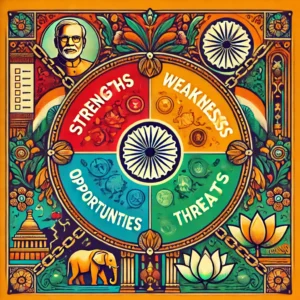Indian politics is a dynamic and often challenging landscape, where the stakes are high and the learning curve is steep. For newcomers, especially those from non-political backgrounds, entering this arena can be overwhelming. Mentorship plays a critical role in helping new entrants navigate the complexities of Indian politics, providing them with the guidance and support needed to succeed.
1. The Role of Mentorship in Political Growth
In Indian politics, where experience and connections often determine success, mentorship can accelerate the growth of new politicians. Mentors, who are seasoned leaders, share their insights on the political process, campaign strategies, and effective governance. For example, Rahul Gandhi, a prominent figure in Indian politics, often speaks about the mentorship he received from his grandmother, Indira Gandhi, and his father, Rajiv Gandhi. This mentorship helped him understand the intricacies of Indian politics and leadership at a young age.
Key Points:
– Accelerates learning and growth.
– Provides insights and strategies for success.
– Builds confidence in new politicians.
2. Learning the Unwritten Rules
Indian politics is not just about understanding laws and policies; it’s also about mastering the unwritten rules that govern political dynamics. Mentors help newcomers understand these nuances, such as navigating party hierarchies, building alliances, and understanding regional sensitivities. For instance, Nara Lokesh, son of former Andhra Pradesh Chief Minister Chandrababu Naidu, benefited from his father’s mentorship in understanding the political landscape of Andhra Pradesh, including the importance of grassroots connections and managing party workers.
Key Points:
– Understanding the nuances of political interactions.
– Navigating party dynamics and alliances.
– Avoiding common missteps.
3. Building Networks and Relationships
In Indian politics, relationships and networks are crucial for career advancement. Mentors introduce new politicians to key figures and help them build the connections necessary for their political journey. For instance, Akhilesh Yadav, the former Chief Minister of Uttar Pradesh, was mentored by his father, Mulayam Singh Yadav, who guided him in building alliances and understanding the political pulse of Uttar Pradesh. These networks were instrumental in Akhilesh’s rise within the Samajwadi Party.
Key Points:
– Building essential political networks.
– Gaining access to influential circles.
– Opportunities for collaboration and support.
4. Overcoming Challenges with Experienced Guidance
New entrants in Indian politics often face challenges such as managing public perception, handling media scrutiny, and making tough decisions. Mentors provide crucial advice during such times. An example is the guidance received by Jyotiraditya Scindia from his late father, Madhavrao Scindia, a respected politician. Jyotiraditya often speaks about how his father’s advice helped him handle the pressures of public life and make informed decisions during his early political career.
Key Points:
– Managing public perception and media scrutiny.
– Making informed decisions during crises.
– Maintaining integrity under pressure.
5. Encouraging a Culture of Mentorship
To nurture the next generation of Indian political leaders, it is essential to foster a culture of mentorship within political parties. This can be achieved by formalizing mentorship programs and encouraging experienced leaders to mentor young politicians. For example, the BJP’s strategy of grooming young leaders like Devendra Fadnavis, who was mentored by senior leaders in the party, shows the importance of structured mentorship in political growth.
Key Points:
– Formalizing mentorship programs in political organizations.
– Recognizing and rewarding mentors.
– Strengthening the political system through mentorship.
Conclusion
Mentorship is a vital element in the success of new entrants in Indian politics. By providing guidance, building networks, and offering support, mentors play a crucial role in shaping the next generation of political leaders. Encouraging a culture of mentorship will not only benefit individual politicians but also contribute to a more robust and effective political system in India.

